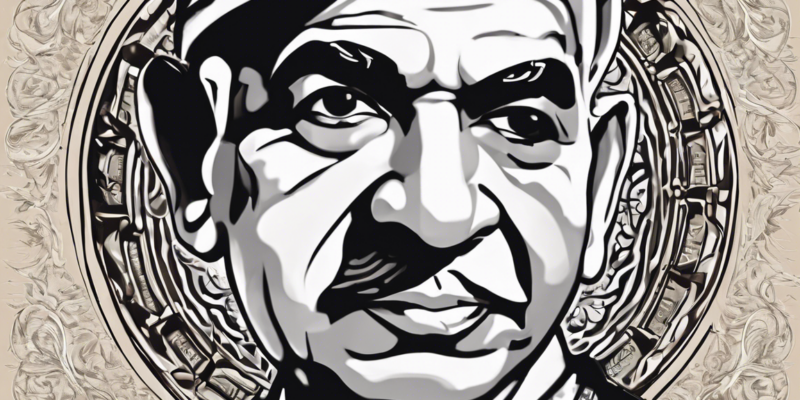Introduction
Chaudhary Charan Singh, the sixth Prime Minister of India, is a towering figure in the country’s political landscape. A staunch advocate for farmers’ rights and a champion of social justice, his legacy continues to influence Indian politics to this day. This political biography will delve into his early life, political career, major accomplishments, and lasting impact on Indian society.
Early Life and Entry into Politics
Chaudhary Charan Singh was born on December 23, 1902, in a small village in Uttar Pradesh. Coming from a humble agricultural background, he developed a deep understanding of the challenges faced by farmers in rural India. His early experiences shaped his political ideology, centered around agrarian reforms and empowering the marginalized.
Entering politics in the 1930s, Charan Singh quickly rose through the ranks, becoming a prominent leader in the Indian National Congress. His commitment to social justice and economic equality resonated with the masses, earning him a reputation as a grassroots leader who truly understood the needs of the common people.
Political Career and Agrarian Reforms
Chaudhary Charan Singh served as the Chief Minister of Uttar Pradesh and later as the Deputy Prime Minister of India before assuming the role of Prime Minister in 1979. Throughout his political career, he remained dedicated to improving the conditions of farmers and implementing agrarian reforms to uplift rural India.
One of his most significant achievements was the enactment of the Uttar Pradesh Zamindari Abolition and Land Reforms Act, aimed at ending the feudal system and redistributing land to landless farmers. This landmark legislation transformed the socio-economic landscape of Uttar Pradesh and served as a model for agrarian reforms in other states.
Legacy and Lasting Impact
Charan Singh‘s tenure as Prime Minister was short-lived, but his impact on Indian politics endured. His unwavering commitment to farmers’ rights and social justice continues to inspire political movements and policies aimed at addressing agrarian distress and income inequality.
His emphasis on decentralization and empowering local governance structures also laid the foundation for future initiatives promoting grassroots democracy and participatory decision-making. Chaudhary Charan Singh‘s belief in inclusive growth and equitable distribution of resources remains relevant in the ongoing discourse on sustainable development and social welfare.
Conclusion
In conclusion, Chaudhary Charan Singh was a visionary leader who dedicated his life to serving the interests of the marginalized and empowering the farming community. His unwavering commitment to agrarian reforms and social justice left an indelible mark on Indian politics, shaping the trajectory of the country’s development agenda.
Through his leadership and advocacy, Charan Singh embodied the principles of integrity, empathy, and resilience, setting a benchmark for future generations of politicians. As India continues to navigate complex socio-economic challenges, his legacy serves as a guiding light for policymakers and stakeholders committed to building a more equitable and inclusive society.
FAQs
- What were some of Chaudhary Charan Singh’s major achievements as Prime Minister?
-
Chaudhary Charan Singh’s major achievements as Prime Minister include implementing agrarian reforms, advocating for farmers’ rights, and promoting social justice initiatives.
-
How did Chaudhary Charan Singh contribute to the empowerment of rural India?
-
Chaudhary Charan Singh contributed to the empowerment of rural India through legislation aimed at abolishing the feudal system, redistributing land, and improving the socio-economic conditions of farmers.
-
What was the significance of the Uttar Pradesh Zamindari Abolition and Land Reforms Act?
-
The Uttar Pradesh Zamindari Abolition and Land Reforms Act, spearheaded by Chaudhary Charan Singh, aimed to end the feudal system, redistribute land to landless farmers, and promote agricultural sustainability.
-
How has Chaudhary Charan Singh’s legacy influenced contemporary Indian politics?
-
Chaudhary Charan Singh’s legacy continues to influence contemporary Indian politics by inspiring policies focused on agrarian reforms, social justice, and inclusive development.
-
What values did Chaudhary Charan Singh embody in his political career?
- Chaudhary Charan Singh embodied values of integrity, empathy, and resilience in his political career, advocating for the rights of the marginalized and empowering the farming community.





